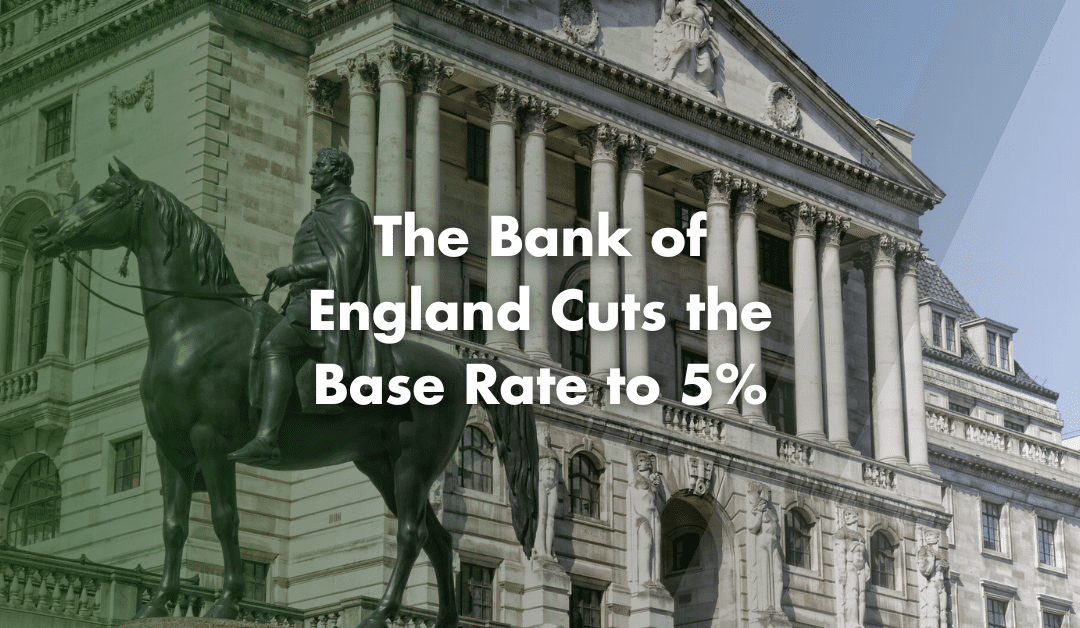The Bank of England Cuts the Base Rate to 5%
On the 1st August 2024, the Bank of England cut the base rate from 5.25% to 5% – marking the first base rate cut in over four years!
The Bank of England (BoE) uses the base rate to control inflation, which also affects mortgage and savings rates. The BoE’s decision to cut the base rate to 5% aims to stimulate economic growth by lowering borrowing costs. While this is good news for borrowers, savers might see a dip in returns.
Impact on Mortgage Borrowers
If you have a mortgage, here what you need to know:
- Fixed Mortgage Deals: There is no immediate change if you are on a fixed mortgage deal. However, if your deal is ending soon, it might be a good time to look for new deals.
- Tracker Mortgages: If you have a tracker mortgage (which follows the Bank of England’s base rate), your rate will decrease, leading to lower monthly payments.
- Standard Variable Rate (SVR) Mortgages: If you are on an SVR mortgage, your rate might come down. However, SVR rates are usually higher than fixed or tracker deals, so it is wise to check if you can switch to a more favourable deal.
Impact on Savers
Savings rates have been stable this year, but the base rate cut might cause a dip in savings rates. Easy-access accounts are likely to be affected first. To maximise your savings, check your current rate and consider switching if it’s less than the top standard easy-access rate of 5.2%.
Additionally, individuals looking to save amidst these changes should consider Individual Savings Accounts (ISAs) to maximise their returns while enjoying tax advantages.
Benefits for Borrowers
The interest rate cut should lower borrowing costs. This can be beneficial in several ways:
- Lower Mortgage Payments: Reduced monthly payments can free up cash for other investments.
- Cheaper Business Loans: Lower borrowing costs can make it more affordable to expand your business or invest in new equipment.
- Reduced Credit Card Interest: If you use credit cards for business expenses, a lower interest rate means lower interest payments.
Impact on Consumer Spending
Lower borrowing costs can boost consumer spending. This can create more demand for goods and services, which can benefit freelancers, consultants, and small business owners. Increased consumer spending can lead to more opportunities and higher revenues.
Inflation and Business Confidence
While the rate cut aims to stimulate economic growth, it can also impact inflation. Lower interest rates can increase demand, driving up prices. It is essential to monitor inflation trends and adjust pricing accordingly.
The rate cut can also improve business confidence. Lower borrowing costs and increased consumer spending can create a more favourable business environment. Moreover, this can encourage investment and expansion.
Contact Us
We are not just accountants; we are Chartered Accountants with one of the most reputable and premium accounting bodies. We are registered and regulated by ACCA; so you can rest assured that you are in good hands. Knowing this, don’t hesitate to get in touch with us if you require assistance: Pi Accountancy | Contact Us

